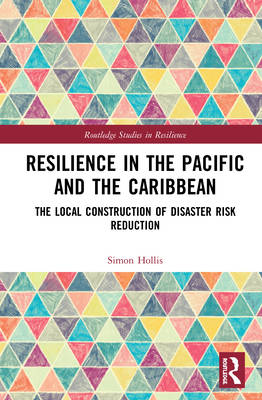
- Afhalen na 1 uur in een winkel met voorraad
- Gratis thuislevering in België vanaf € 30
- Ruim aanbod met 7 miljoen producten
- Afhalen na 1 uur in een winkel met voorraad
- Gratis thuislevering in België vanaf € 30
- Ruim aanbod met 7 miljoen producten
Resilience in the Pacific and the Caribbean
The Local Construction of Disaster Risk Reduction
Simon HollisOmschrijving
This book critically examines the global diffusion and local reception of resilience through the implementation of Disaster Risk Reduction (DRR) programmes in Pacific and Caribbean island states.
Global efforts to strengthen local disaster resilience capacities have become a staple of international development activity in recent decades, yet the successful implementation of DRR projects designed to strengthen local resilience remains elusive. While there are pockets of success, a gap remains between global expectations and local realities. Through a critical realist study of global and local worldviews of resilience in the Pacific and Caribbean islands, this book argues that the global advocacy of DRR remains inadequate because of a failure to prioritise a person-orientated ethics in its conceptualization of disaster resilience. This regional comparison provides a valuable lens to understand the underlying social structures that makes resilience possible and the extent to which local governments, communities and persons interpret and modify their behaviour on risk when faced with the global message on resilience.
This book will be of much interest to students of resilience, risk management, development studies, and area studies.
Specificaties
Betrokkenen
- Auteur(s):
- Uitgeverij:
Inhoud
- Aantal bladzijden:
- 206
- Taal:
- Engels
- Reeks:
Eigenschappen
- Productcode (EAN):
- 9780367076283
- Verschijningsdatum:
- 27/10/2020
- Uitvoering:
- Hardcover
- Formaat:
- Genaaid
- Afmetingen:
- 155 mm x 239 mm
- Gewicht:
- 417 g

Alleen bij Standaard Boekhandel
Beoordelingen
We publiceren alleen reviews die voldoen aan de voorwaarden voor reviews. Bekijk onze voorwaarden voor reviews.











